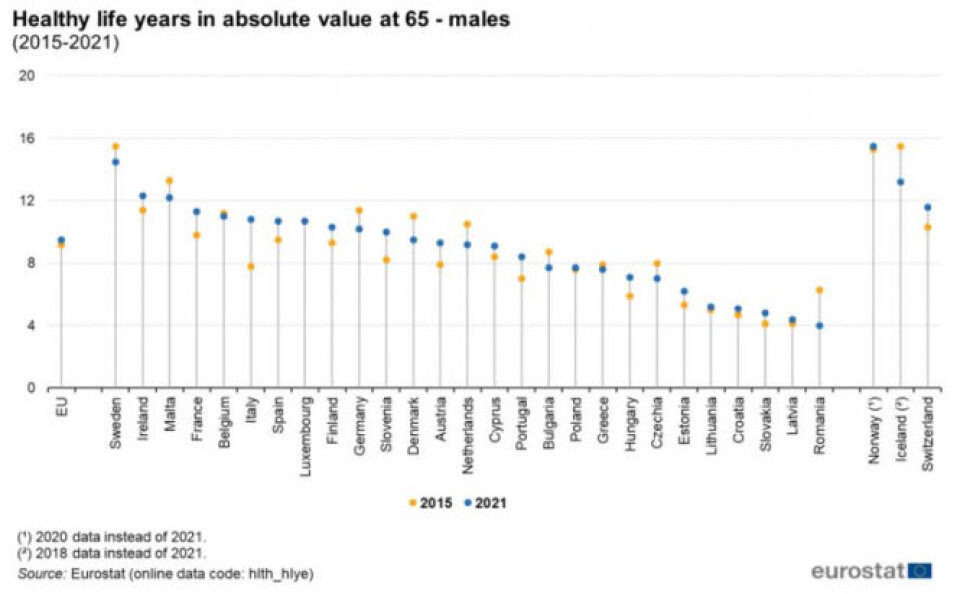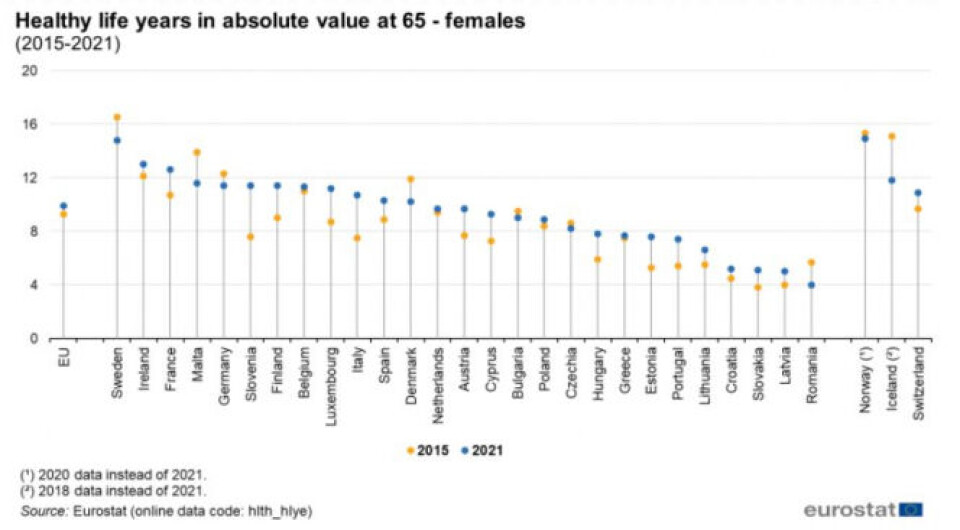-
Vaccination campaign against flu in France is extended
It comes as all regions are at epidemic level and a new ‘super’ strain of the virus is spreading
-
My health journey: I had emergency op for appendix tumour in France
Vivion Gibbs, 73, who moved to Brittany from the UK in 2011, describes how lower back pain quickly escalated into something far more serious
-
People are living longer in better health in France, official new data shows
The expected healthspan of people in France has increased by almost two years since 2008
‘Healthy’ life expectancy is increasing in France
Trend for living longer in good shape after 65 in confirmed for both men and women

‘Healthy’ life expectancy - that is the number of years that a person can expect to live without being limited in the activities of daily living - is increasing in France for both men and women, with the country well above the European average.
However, a new report has also found a decrease compared with the previous year’s numbers.
The report by statistical research agency DREES* drawing on data from 2022, shows that from 2008 to 2022, healthy life expectancy in France increased overall by one year and nine months for women; and one year, six months for men.
In 2023, women aged 65 can be expected to have 11.8 years of good health, and men, 10.2 years.
The same figures for 2021, were 12.6 years for women, and 11.3 years for men, which the study’s authors suggest is an upwards fluctuation due to the influence of Covid on the study’s dataset.
“It is more relevant to identify trends over several years, which allows us to be less influenced by the sometimes sudden fluctuations from one year to the next,” the report states.
How does France compare to the European average?
Men in France have eight months longer healthy life expectancy than the European average:

Women in France have one year and eight months longer healthy life expectancy than the European average:

More years after 65 are healthy
The new study shows the percentage of health years after 65 is growing:
- For men, 59.3% of their remaining years after 65 are considered healthy (this figure was 47.7% in 2008)
- For women, 54.4% of their remaining years after 65 are considered healthy (this figure was 44.7% in 2008)
What is healthy life expectancy?
Healthy life expectancy is a gauge of how long people live without significant disability, loss of independence, or debilitating health conditions that affect them for more than six months in a year.
The DREES defines the measure as “the number of years that a person can expect to live without being limited in the activities of daily living”.
It focuses on this indicator rather than life expectancy at birth, because although that measure “is increasing steadily…not all [a person’s] final years are necessarily spent in good health”, it said.
*DREES stands for la Direction de la recherche, des études, de l'évaluation et des statistiques. To make its calculations for the study, DREES conducts face-to-face interviews and self-reporting from people who say they “have been limited for at least six months in the activities they usually do because of a health problem”.
Related articles
MAP: See how life expectancy rates vary across France
People in France are living longer in good health, study finds
























